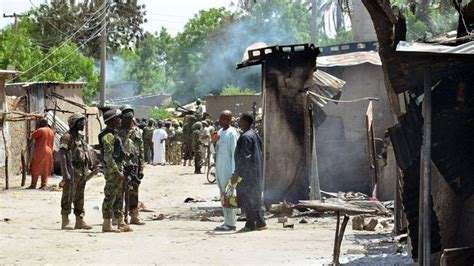
The Nigeria Security and Civil Defence Corps (NSCDC) has confirmed that seven of its officers are missing following a coordinated ambush by Boko Haram militants in Shiroro, Niger State, 9News Nigeria reports. The incident occurred on Monday, November 18, 2024, as a convoy of 80 security personnel conducted a routine patrol to safeguard national power infrastructure.
According to Babawale Afolabi, the NSCDC spokesperson, the convoy was unexpectedly attacked by approximately 200 Boko Haram fighters. The ensuing confrontation resulted in the deaths of at least 50 insurgents. However, the fate of the seven missing officers remains uncertain, prompting an intensive search operation in the surrounding areas.
“Our operatives were on a mission to protect critical national assets when they were ambushed by a large number of Boko Haram terrorists,” Afolabi stated. “We are currently conducting search and rescue operations to locate our missing personnel.”
This ambush underscores the persistent threat posed by Boko Haram, a group that has primarily operated in Nigeria’s northeastern regions but has increasingly extended its activities into the north-central areas, including Niger State. The group’s strategy has evolved to include attacks on infrastructure, notably targeting the nation’s power grid. In October 2024, Boko Haram militants sabotaged power installations, leading to a prolonged blackout in northern Nigeria that lasted over a week.
The Nigerian government has acknowledged the presence of Boko Haram cells in Niger State, a predominantly Muslim region. The group’s incursions have resulted in numerous attacks on both military personnel and civilians, raising concerns about the expanding reach of their insurgency.
Boko Haram, whose name translates to “Western education is forbidden,” initiated its insurgency in 2009 with the aim of establishing an Islamic state governed by Sharia law. Over the past 15 years, the conflict has claimed the lives of approximately 35,000 civilians and displaced more than two million people, according to United Nations estimates. The group’s activities have also spilled over into neighboring countries, including Chad, Niger, and Cameroon, destabilizing the broader Lake Chad Basin region.
The Nigerian military, in collaboration with regional forces, has launched several offensives against Boko Haram. While these efforts have led to the recapture of territories previously held by the insurgents, the group continues to carry out sporadic attacks, particularly in remote and vulnerable areas.
In response to the recent ambush, security agencies have intensified surveillance and patrols in Niger State and its environs. The government has reiterated its commitment to combating insurgency and ensuring the safety of its citizens.
“We are resolute in our determination to eradicate terrorism from our nation,” said a government spokesperson. “The safety of our people and the protection of our national assets remain our top priorities.”
The international community has expressed concern over the resurgence of Boko Haram activities. Analysts suggest that the group’s continued attacks on infrastructure are aimed at undermining public confidence in the government’s ability to provide essential services and maintain security.
“Boko Haram’s strategy appears to be shifting towards targeting critical infrastructure, which has far-reaching implications for national security and economic stability,” noted a security expert. “Addressing this threat requires a comprehensive approach that includes military action, intelligence gathering, and community engagement.”
The families of the missing NSCDC officers are anxiously awaiting news of their loved ones. Support services have been mobilized to provide counseling and assistance during this challenging time.
As search and rescue operations continue, the incident serves as a stark reminder of the ongoing challenges Nigeria faces in its fight against insurgency. The government’s response in the coming days will be crucial in determining the trajectory of security efforts in the region.
The international community continues to monitor the situation closely, emphasizing the need for sustained support and collaboration to address the root causes of extremism and restore peace and stability to affected regions.
9News Nigeria
